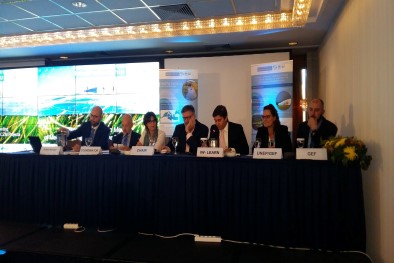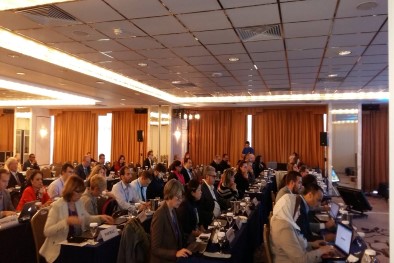GWP-Med had a key role in the projects:
- The GEF[1] UNEP/MAP[2] MedPartnership[3] Programme (2009-2015) enabled a coordinated, strategic approach for catalysing policy, legal and institutional reforms, as well as the necessary investments to reverse the degradation trends affecting the unique Mediterranean Sea, its coastal habitats and biodiversity, including through 78 replicable demonstration projects.
- GWP-Med led the Integrated Water Resources Management (IWRM) Sub-Component, with a total budget of €1.5 million, offering tools for improved IWRM planning, through assessment, technical assistance and policy dialogue in Egypt, Lebanon, Palestine and Tunisia. Furthermore, an Integrative Methodological Framework for IWRM/Integrated Coastal Zone Management (ICZM) was elaborated, in collaboration with PAP RAC[4] and UNESCO. It was tested in preparing the management plan for Buna/Bojana River, the natural border between Albania and Montenegro, as well as for the Awali River in Lebanon. A continuation of the MedPartnership project is currently under design, proving the added value of contributions made.

- The ‘ClimVar & ICZM’ Project (2012-2015) was a collective effort of 11 developing countries sharing the Mediterranean to promote the use of Integrated Coastal Zone Management (ICZM) as an effective tool to deal with the impacts of climate variability and change in coastal zones by mainstreaming its provisions and tools into national and regional processes. Joint ICZM and IWRM approaches and practices are an integral part of local sustainable development planning.
- The project strengthened the understanding of the risks that climate variability and change pose to the region’s marine and coastal areas, as well as of available response options and strengthened partnerships, improved capacity building and established mechanisms for the exchange of data and information for integration of climate variability and change into concrete ICZM policies, plans and programmes. With a total budget of 9.2 million USD by GEF, EU and other contributors, the Project was led by UNEP/MAP and was implemented by PAP/RAC, Plan Bleu/RAC, GWP-Med, UNEP-Grid Geneva, and the University of Geneva.
- GWP-Med’s contribution focused on technically assisting the elaboration of the UNEP/MAP Regional Framework for Climate Change Adaptation[5]; supporting the assessment of environmental and socioeconomic impacts and the evaluation of response options in the Kerkennah Islands in Tunisia, as well as building capacity of national authorities on related tools and methodologies; advancing policy dialogue and raising capacity on climate variability and change with emphasis on ICZM and IWRM issues with a focus on parliamentarians, media and NGOs.
Highlighting the positive trend that these two projects created, Mr. Gaetano Leone, Coordinator of UNEP/MAP, noted in his opening remarks: “The results of the two projects went well beyond figures, and created a momentum adding strength and support to the implementation of the Barcelona Convention and its principles”.
